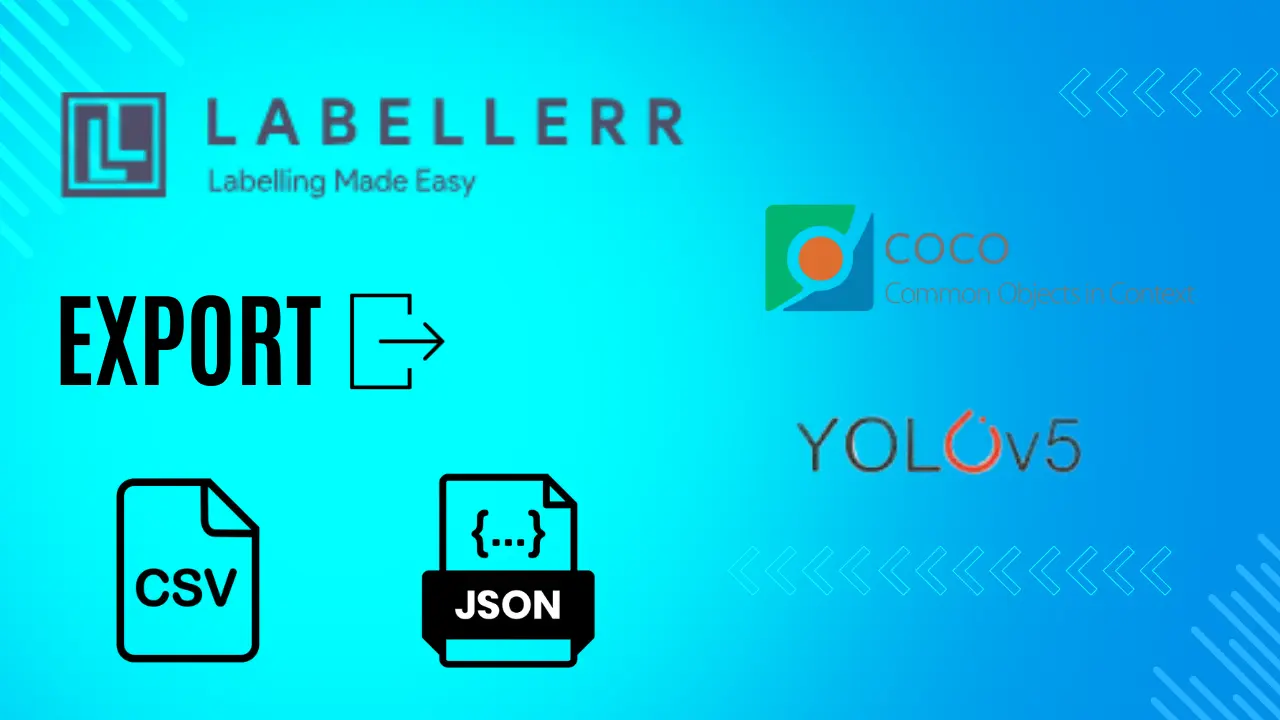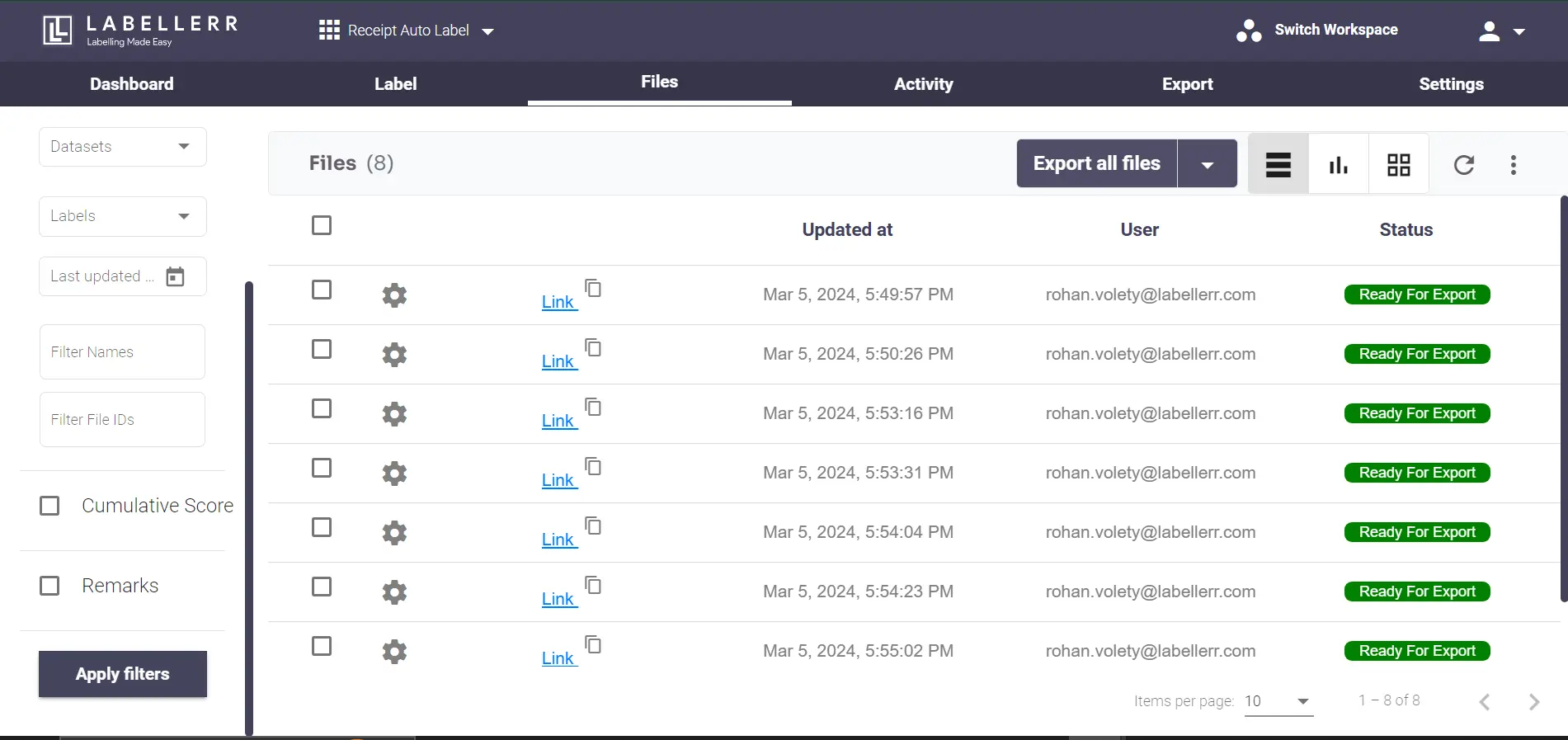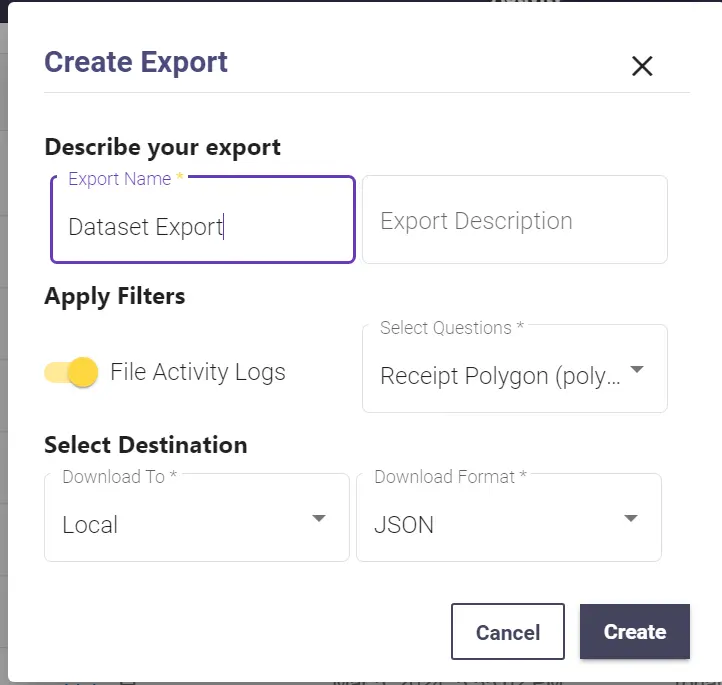Get Labeled Data In Multiple Format With Labellerr

Table of Contents
- Introduction
- Why Is It Needed?
- Advantages and Features
- How to Export Dataset in Labellerr
- Conclusion
- Frequently Asked Questions
Introduction
Labellerr simplifies the export process, allowing users to seamlessly export files in various formats such as JSON, CSV, COCO, YOLOv5 and more .
Choose the format that best fits your needs, whether it's JSON for interoperability, CSV for easy data manipulation, or YOLOv5 for specific models.
With Labellerr, exporting files is straightforward and hassle-free, offering users flexibility and adaptability in managing their data. Experience the simplicity of exporting with Labellerr.
This feature revolutionizes data management, catering to the various needs and preferences of users.
Why is it needed?
Data often resides in a specific format, but for further analysis or integration with other systems, it might require conversion into a different format.
Labellerr's export feature addresses this challenge by allowing users to export files in formats such as JSON, CSV, YOLOv5 and many more.
This capability streamlines data sharing, enhances flexibility, and simplifies data manipulation tasks.
Advantages and Features
Flexibility: Labellerr's export feature offers users the flexibility to choose from multiple formats, including JSON, CSV, and YOLOv5, catering to diverse requirements.
Easy Data Manipulation: With CSV export, users can effortlessly manipulate data using popular spreadsheet software, enhancing productivity and efficiency.
Model Compatibility: The support for the YOLOv5 format enables seamless integration with specific models, ensuring compatibility and efficiency in object detection tasks.
Seamless Process: Labellerr streamlines the export process, making it intuitive and user-friendly, thereby saving time and effort for users.
Adaptability: Whether users require standard data formats for general use or specialized formats for specific tasks, Labellerr's export feature adapts to their needs, ensuring optimal usability and convenience.
How to export dataset in Labellerr
1) Once all annotations have been completed, go to the "Files" tab on the dashboard. From there, select "Export all files" to initiate the export process.

2. Click on Export All Files and enter the details required. Then, choose the desired format for export and click on "Create" to start the export process.

For a more hands-on tutorial, you can watch the following video on YouTube:
Conclusion
In conclusion, Labellerr's export feature not only addresses the limitations of traditional data management systems but also empowers users with the flexibility, adaptability, and efficiency needed for modern data management tasks.
Users can easily switch between different formats based on project requirements, thereby optimizing their data management practices.
This feature not only saves time but also enhances collaboration and communication among team members by providing a standardized format for sharing annotated data.
Frequently Asked Questions
Q1) Does exporting data affect the original labels?
No, exporting your data in a different format does not alter the original labels within Labellerr. The exported file simply represents the labeled data in the chosen format.
Q2) Is there any additional cost associated with using the export feature?
Labellerr's export feature is included as part of the standard subscription plan. There are no additional charges for using this functionality.

Simplify Your Data Annotation Workflow With Proven Strategies
Download the Free Guide

